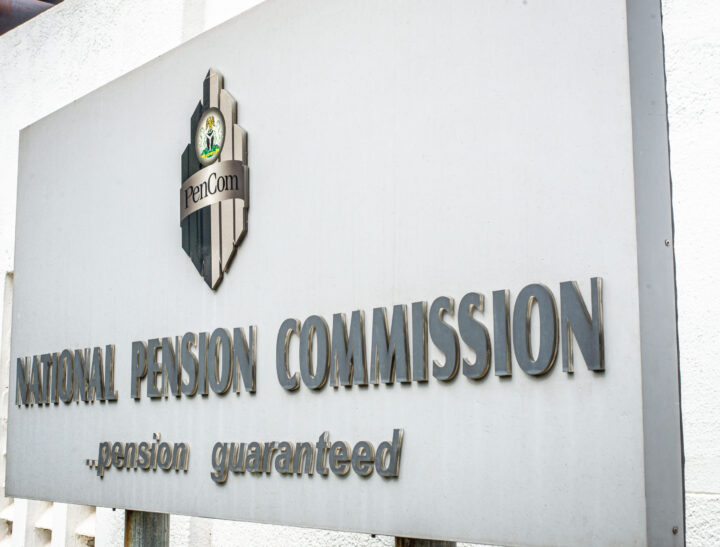In the landscape of Nigeria’s retirement benefits, the true position of the contributory pension scheme (CPS) on gratuity payments has been a subject of misunderstanding. However, a closer examination of the Pension Reform Act 2014 (PRA 2014) alongside initiatives by the National Pension Commission (PenCom) reveals a clearer picture that aims to fortify retirement benefits for workers across the nation.
GRATUITY UNDER THE CPS
Traditionally, gratuity has been a vital component of retirement benefits, symbolising acknowledgement for years of dedicated service to an organisation. With the introduction of the CPS as a reform to the old defined benefits scheme (DBS), apprehensions arose regarding the fate of gratuity payments.
Contrary to fears, the CPS framework, guided by the PRA 2014, has accommodated the payment of lump sums and other additional retirement and terminal benefits.
Advertisement
The PRA 2014 allows employers to establish additional benefits schemes (ABS), through which they can provide enhanced retirement benefits, including gratuity payments, to their employees. This means that employers have the flexibility to offer additional severance benefits beyond the mandatory retirement benefits stipulated by the CPS, depending on the terms of employment, affordability, and collective bargaining.
Under the CPS, an employee has the option to select from two modes of withdrawing retirement benefits, namely, programmed withdrawal from a pension fund administrator (PFA) or retiree life annuity from a life assurance company. In both options, a lump sum payment is allowed to be accessed by the retiree. Buttressing its commitment to the well-being of retirees, PenCom ensures the payment of a lump sum at retirement as provided by the retirement benefits regulations. Similarly, gratuity under the DBS was also given as a lump sum payment to an employee upon retirement.
One significant advantage of the CPS over the DBS is the security and transparency it offers regarding retirement benefits. Unlike in the DBS, where the promise of gratuity did not guarantee payment, the CPS ensures that funds are diligently managed by PFAs, making it impossible for employers to divert these funds for other purposes. This safeguards retirees’ interests and provides them with greater assurance regarding the receipt of their terminal benefits.
Advertisement
PenCom’s unveiling of the framework for the establishment of ABS under the CPS further solidifies this stance. This framework provides a structured approach for employers to enhance retirement benefits while ensuring the proper management and utilisation of pension funds.
CUSTODY AND MANAGEMENT OF ABS
The PRA 2014 permits only institutions licensed by PenCom to hold and manage pension funds and assets. Consequently, only licensed PFAs can manage pension assets. Similarly, the custody of pension assets can only be done by licensed pension fund custodians (PFCs).
Employers seeking to establish an ABS for their employees must demonstrate compliance with the PRA 2014. This includes up-to-date pension contribution remittances, group life insurance cover, and execution of a portfolio management agreement (PMA) with a chosen PFA. Employers may appoint one or more PFAs to manage the ABS, with a lead PFA designated in cases of multiple appointments.
Advertisement
DOCUMENTATION REQUIREMENTS
Employers must submit various documents to PenCom for review and approval to establish an ABS. These include the draft portfolio management agreement, trust deed, rules of the scheme, evidence of pension contribution remittance and group life insurance policy, and evidence of employees’ retirement savings accounts (RSAs).
Employers also need to provide information to indicate if the scheme is a defined benefit or defined contribution and give an undertaking to comply with regulatory provisions and to fund the scheme continuously.
The appointed PFA is responsible for annual actuarial valuations and audits, ensuring compliance with regulatory guidelines.
Advertisement
IMPACT OF ADDITIONAL BENEFITS ON EMPLOYEES
Stakeholders have adjudged the implementation of the CPS in Nigeria a success. However, there are some issues regarding low pensions, especially for public sector retirees. This could be attributed to several factors including the relatively low pay when compared to the private sector and insufficient accumulation of funds for long periods under the CPS, amongst others.
Advertisement
It is vital to state that the CPS provides a comprehensive framework that allows employers and employees to plan and save towards retirement benefits. Accordingly, employers of labour can use the framework for the establishment of additional benefits schemes recognised by the PRA 2014 to increase the pensions of their employees.
It is also imperative to state that various options are available to employers and employees to improve the adequacy of pensions for employees. Providing additional retirement benefits can have several benefits for both employers and employees. It can attract and retain talent, enhance employee morale and loyalty, and improve an organisation’s reputation.
Advertisement
In conclusion, the misconception that the CPS has abolished gratuity payments is unfounded. The framework of the CPS accommodates gratuity and enhanced retirement benefits through additional benefits schemes for willing employers. By understanding the provisions of the PRA 2014 and the workings of the CPS, retirees and workers can navigate their retirement planning with greater clarity and confidence.
Based on information by the National Pension Commission (PenCom).
Advertisement
Add a comment






